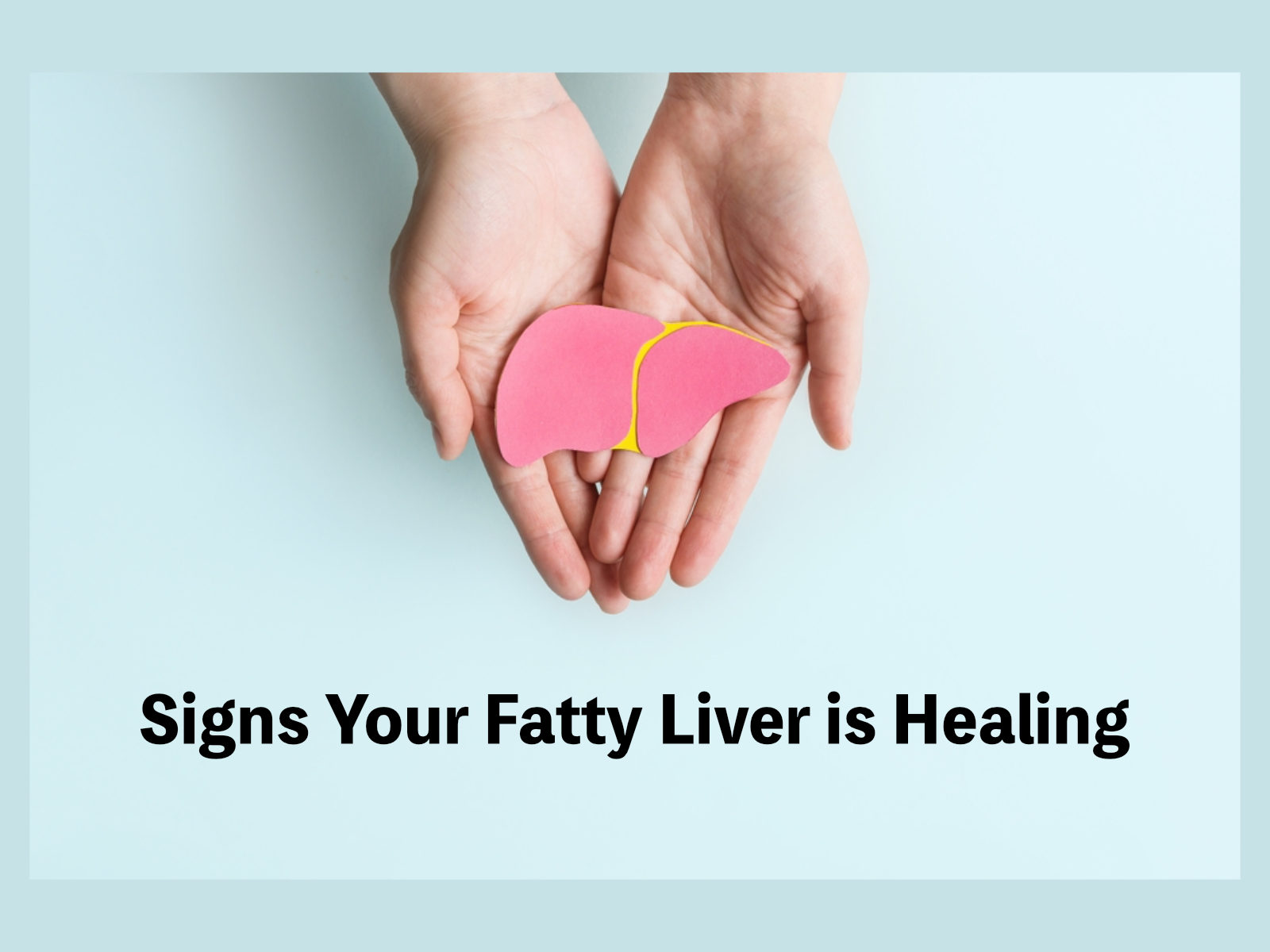Signs Your Fatty Liver is Healing: A Complete Guide
Fatty liver disease, a condition where excess fat builds up in your liver, is a common liver disorder affecting people globally. It comes in two forms: alcoholic fatty liver disease (AFLD), resulting from excessive alcohol consumption, and non-alcoholic fatty liver disease (NAFLD), linked to obesity, diabetes, high cholesterol, and a sedentary lifestyle. Healing a fatty liver is crucial for overall health and well-being, as the liver plays a pivotal role in detoxification, metabolism, and the synthesis of proteins. However, it can be challenging to know if your liver is on the mend. This article will guide you through the signs that indicate your fatty liver is healing and provide tips on how to accelerate the healing process.
Signs Your Fatty Liver is Healing
- Improved Liver Function Tests: Liver function tests (LFTs) are blood tests that measure different enzymes and proteins in your blood to gauge your liver’s health. Key indicators include alanine aminotransferase (ALT), aspartate aminotransferase (AST), alkaline phosphatase (ALP), and bilirubin. Normalizing levels of these enzymes and proteins are a good sign that your liver is healing.
- Weight Loss: Losing weight, especially around the abdomen, is a crucial indicator that your liver is healing. Excess abdominal fat is closely linked to NAFLD, and weight loss is often recommended as part of the treatment plan.
- Reduced Inflammation: Chronic inflammation is a significant contributor to the progression of fatty liver disease. A reduction in inflammation, as evidenced by a decrease in inflammatory markers such as C-reactive protein (CRP), is a positive sign of liver healing.
- Improved Insulin Sensitivity: Insulin resistance is often associated with NAFLD. Improvements in insulin sensitivity, as indicated by fasting blood sugar and insulin levels, are signs that your liver is healing.
- Decrease in Fatigue: Chronic fatigue is a common symptom of fatty liver disease. Feeling more energetic and less fatigued is a positive indicator that your liver function is improving.
- Better Sleep: Sleep disturbances are common in people with fatty liver disease. Improved sleep quality and duration can be a sign that your liver is healing.
- Reduced Jaundice: Jaundice, a yellowing of the skin and eyes, occurs when the liver is not functioning properly and cannot effectively remove bilirubin from the blood. A reduction in jaundice is a clear sign that your liver is healing.
- Normalized Bowel Movements: The liver produces bile, which helps in the digestion and absorption of fats. Normalized bowel movements, particularly if you previously experienced constipation or diarrhea, can be a sign of improved liver function.
How to Accelerate the Healing of Fatty Liver
- Maintain a Healthy Diet: A balanced diet low in saturated fats, refined carbohydrates, and sugars is crucial for healing a fatty liver. Focus on consuming lean proteins, whole grains, fruits, vegetables, and healthy fats.
- Exercise Regularly: Regular physical activity helps in weight loss, improves insulin sensitivity, and reduces liver fat. Aim for at least 150 minutes of moderate-intensity exercise per week.
- Limit Alcohol Consumption: Excessive alcohol consumption is a major cause of AFLD and can also worsen NAFLD. It is advisable to limit or avoid alcohol consumption entirely.
- Manage Stress: Chronic stress is linked to inflammation and can worsen fatty liver disease. Practice stress-reducing techniques such as deep breathing, meditation, and yoga.
- Take Liver-Supportive Supplements: Certain supplements, such as milk thistle, turmeric, and omega-3 fatty acids, may support liver health. However, it is essential to consult a healthcare professional before starting any new supplement regimen.
Healing a fatty liver is crucial for overall health and well-being. Key signs that your fatty liver is healing include improved liver function tests, weight loss, reduced inflammation, improved insulin sensitivity, decrease in fatigue, better sleep, reduced jaundice, and normalized bowel movements. A comprehensive approach, including maintaining a healthy diet, exercising regularly, limiting alcohol consumption, managing stress, and taking liver-supportive supplements, can help accelerate the healing process. However, it is always advisable to consult a healthcare professional before starting any new dietary regimen or supplement.

